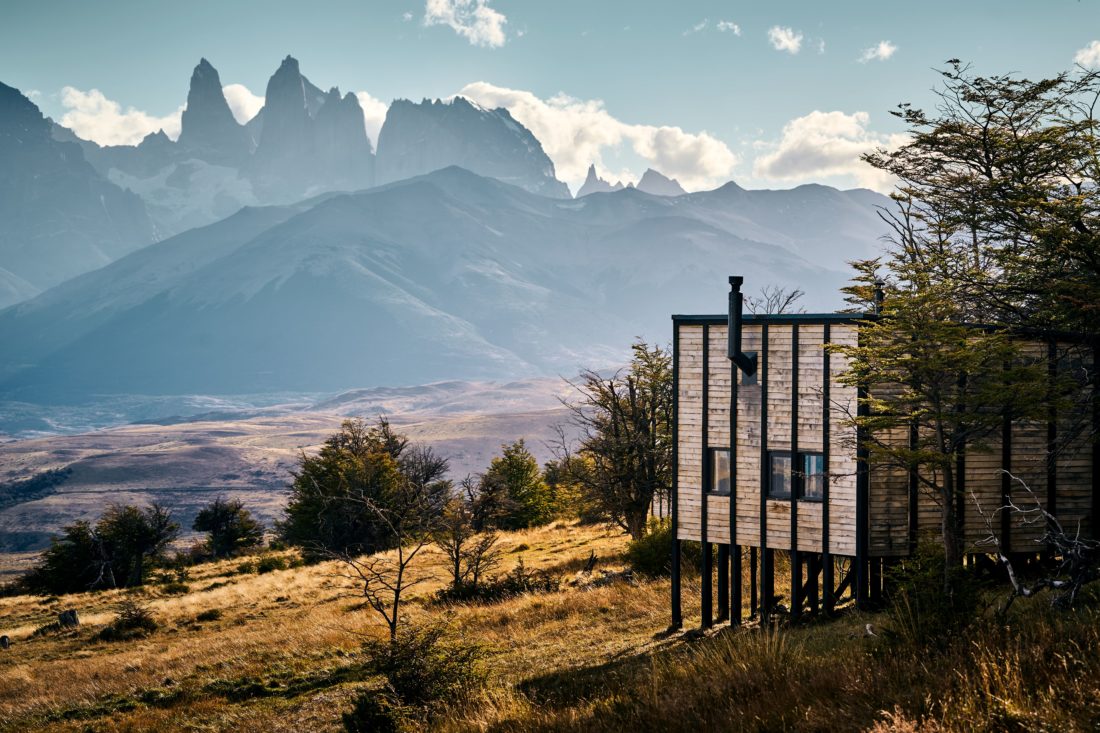“Travellers today face a dilemma between the desire to enjoy unique experiences and their ability to live according to their ecological convictions,” writes Food Educator and Activist, Charles Michel, who aims to inspire solutions for urgent global challenges.
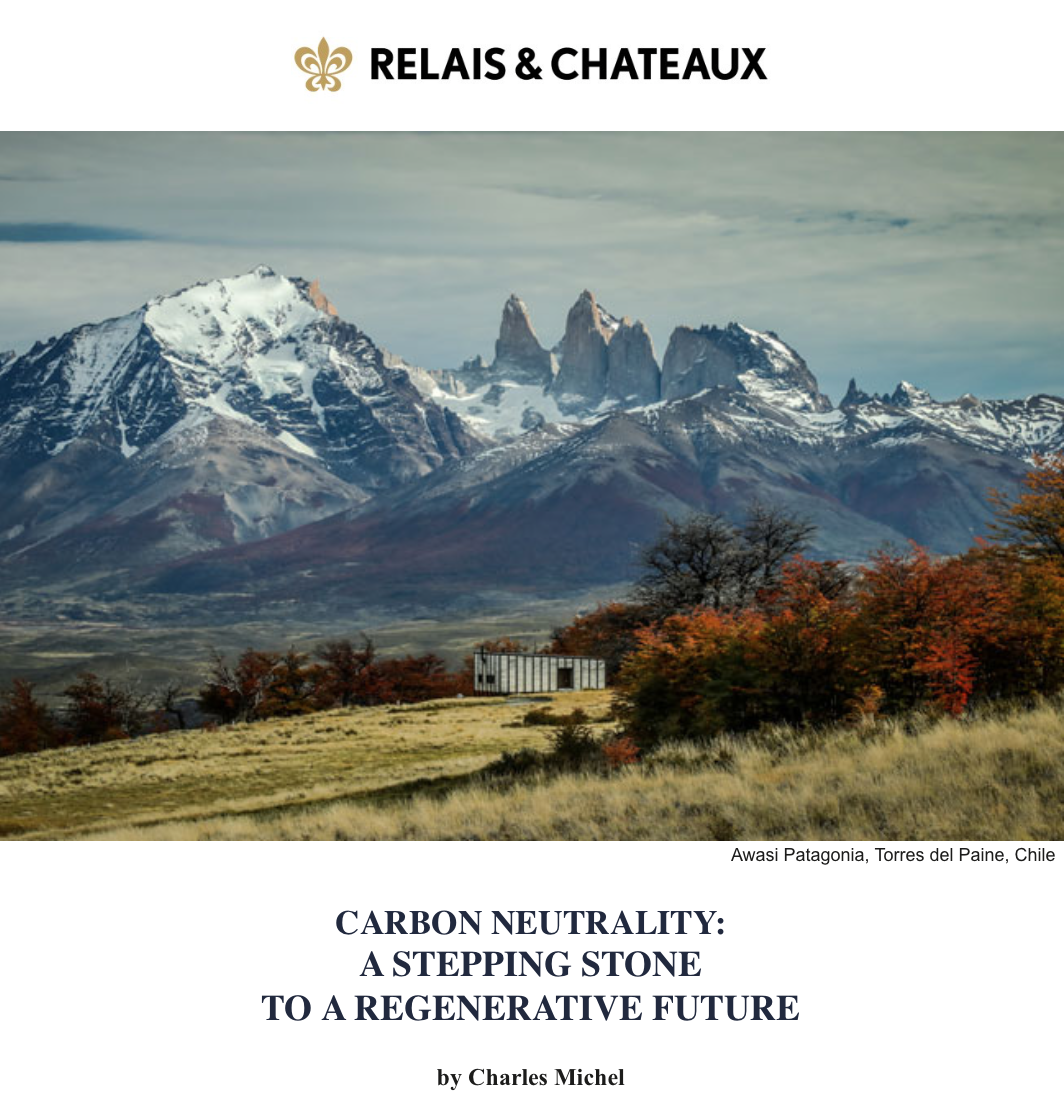 Michel writes in Instants, the Relais & Chateaux magazine. The piece is titled “Carbon Neutrality: A Stepping Stone To A Regenerative Future” and specifically tackles the dilema faced by eco-minded travellers regarding how to reconcile their environmental responsibility with travel when the very principle of the latter is to move from one place to another.
Michel writes in Instants, the Relais & Chateaux magazine. The piece is titled “Carbon Neutrality: A Stepping Stone To A Regenerative Future” and specifically tackles the dilema faced by eco-minded travellers regarding how to reconcile their environmental responsibility with travel when the very principle of the latter is to move from one place to another.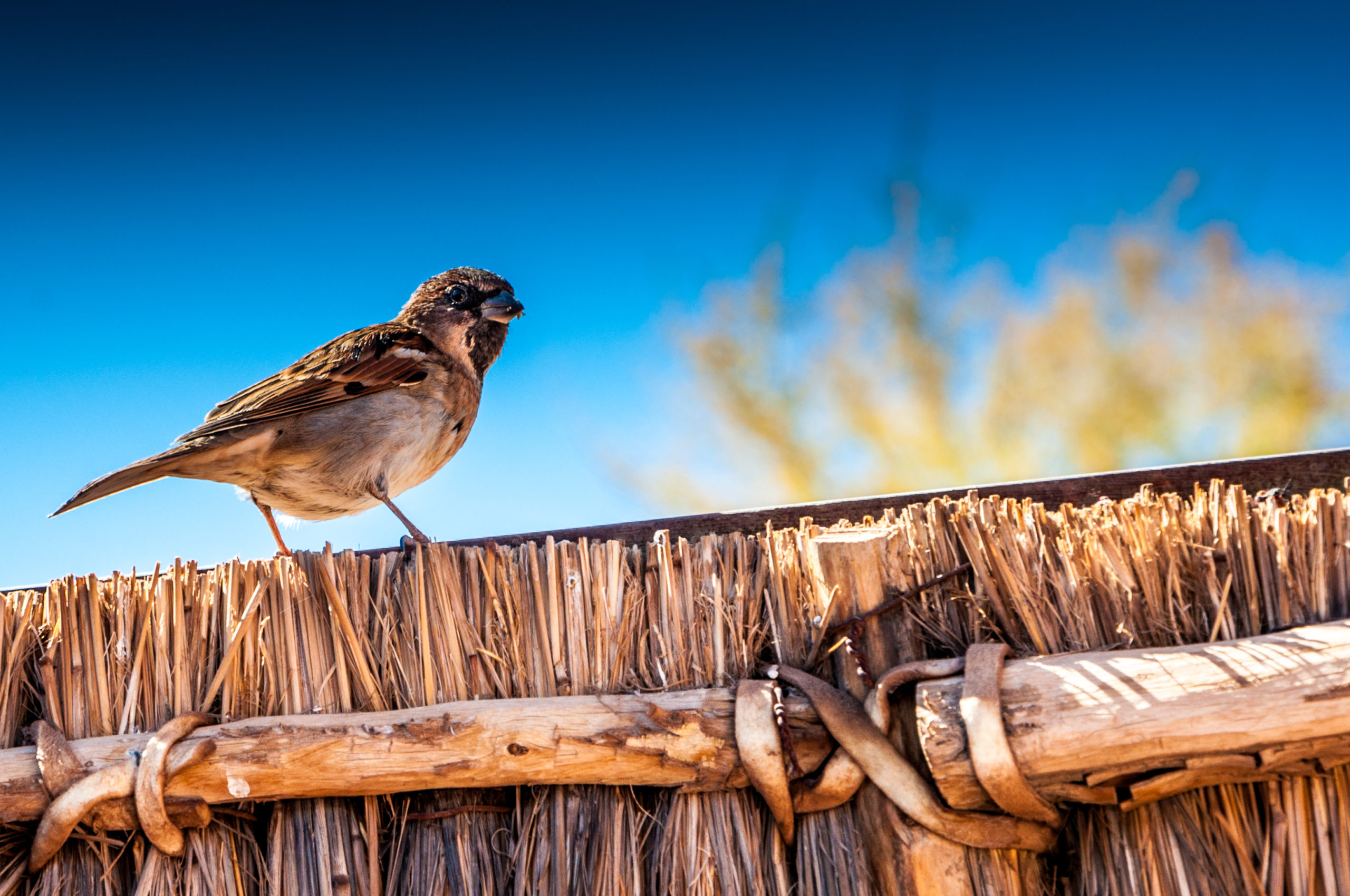
A bird perches on the woven fence at Awasi Atacama – Relais & Chateaux
Among Relais & Châteaux properties, explains Michel, several hotels are engaging in radical change by becoming carbon neutral.
“The aim: to cater to evolving demand from a new generation of guests and to reflect a new era of conscious consumption.”
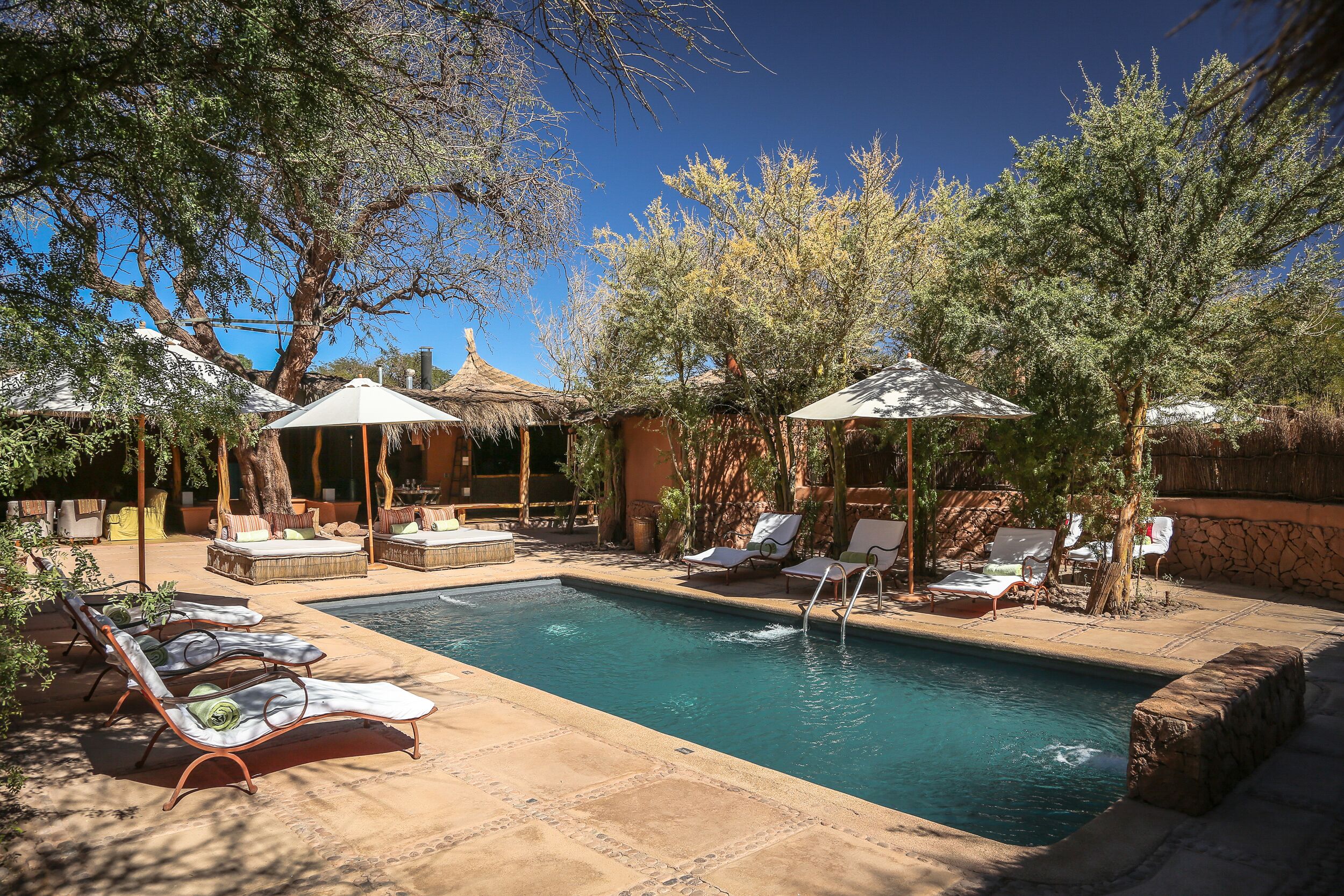
Awasi Atacama – Relais & Chateaux
“This is something that touches on how all types of hospitality services are designed and how they impact nature and humanity,” says Michel.
But can ecological integrity truly be aligned with exceptional travel and experiences?
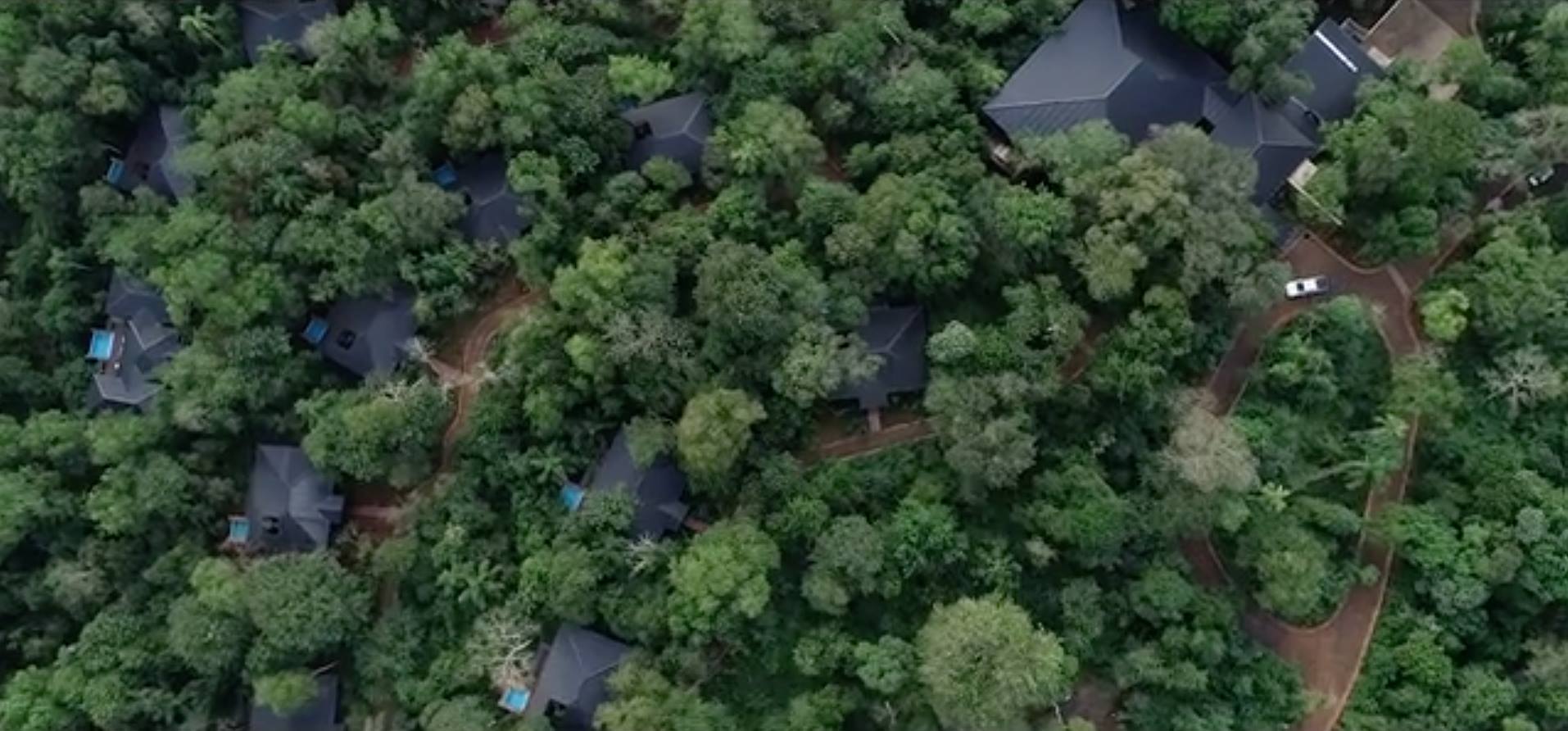
Awasi Iguazu is surrounded by woodland, built on stilts for minimal impact
The article goes on to give some examples of Relais & Chateaux properties working to align ecology with travel. First up: Awasi.
“With three locations in South America – Iguazú, Patagonia and Atacama – Awasi has become carbon neutral across its entire operation, even assuring that the carbon emissions generated by travelers making their way to these establishments can be captured in the earth.”
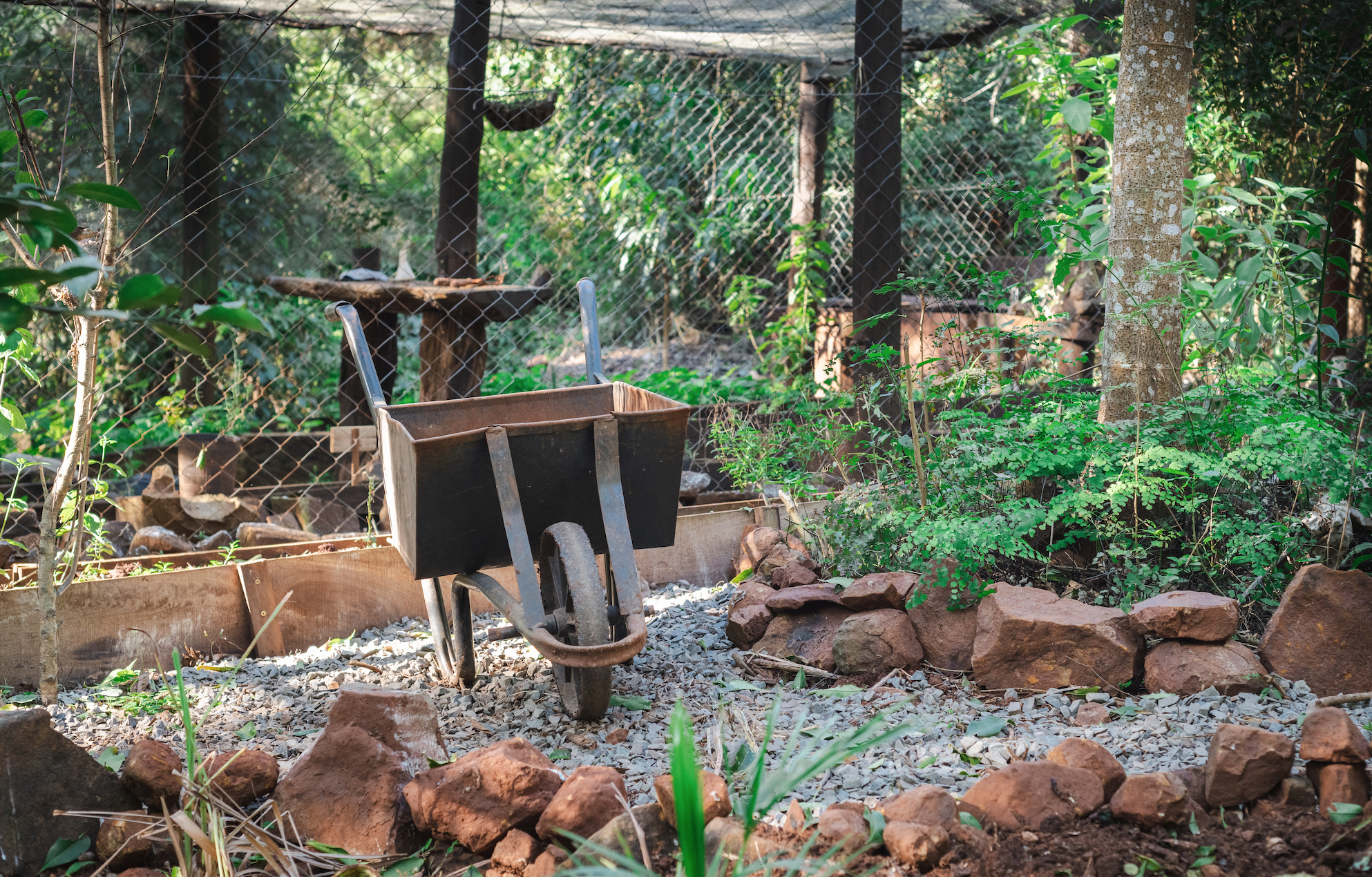
The organic vegetable garden at Awasi Iguazu
Th article quotes our director general: “I hate that phrase ‘save the planet’,” says Matías de Cristóbal, director of Awasi. “It seems to me to be human arrogance – it’s as if the planet needed humans, and that we humans were here to save it. At most, we may be able to save ourselves, and preserve the natural ecosystems that sustain us.”
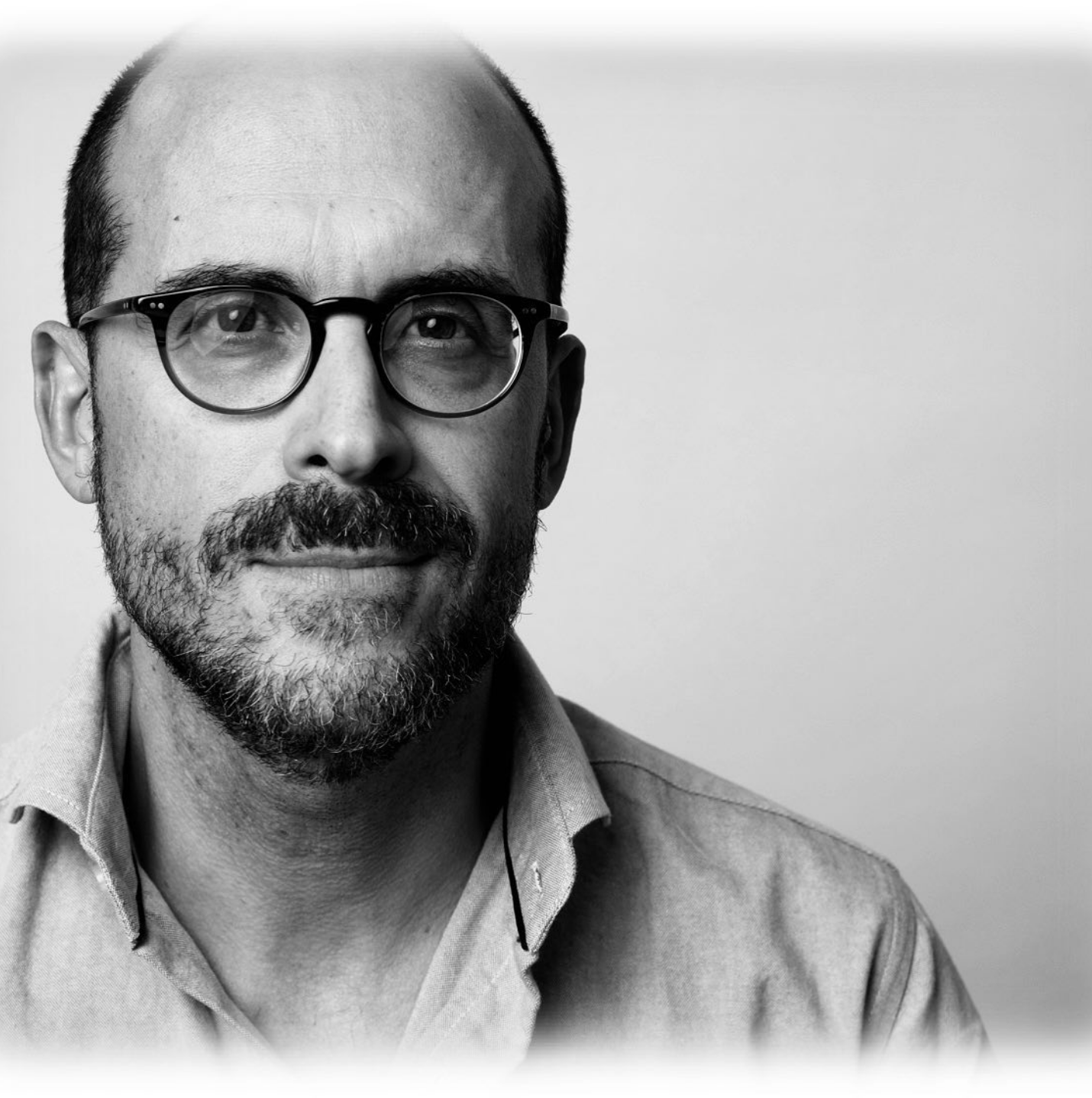
Matias de Cristobal
“Matías’ convictions began taking shape about fifteen years ago,” writes Mathis, “when a guest expressed his anxiety over the carbon footprint of flying to Patagonia from the other side of the world. Matías understood there was something profound to be addressed, but few were talking about it back then. Purchasing carbon credits felt like a natural first step.”
The article explains how the opportunity arose to invest in land close to the Awasi properties. “We started connecting with local culture and nature to generate memorable experiences,” says Matías. “That may seem trivial, but by doing so with integrity, we naturally tended to be in harmony with cultural and natural ecosystems.”
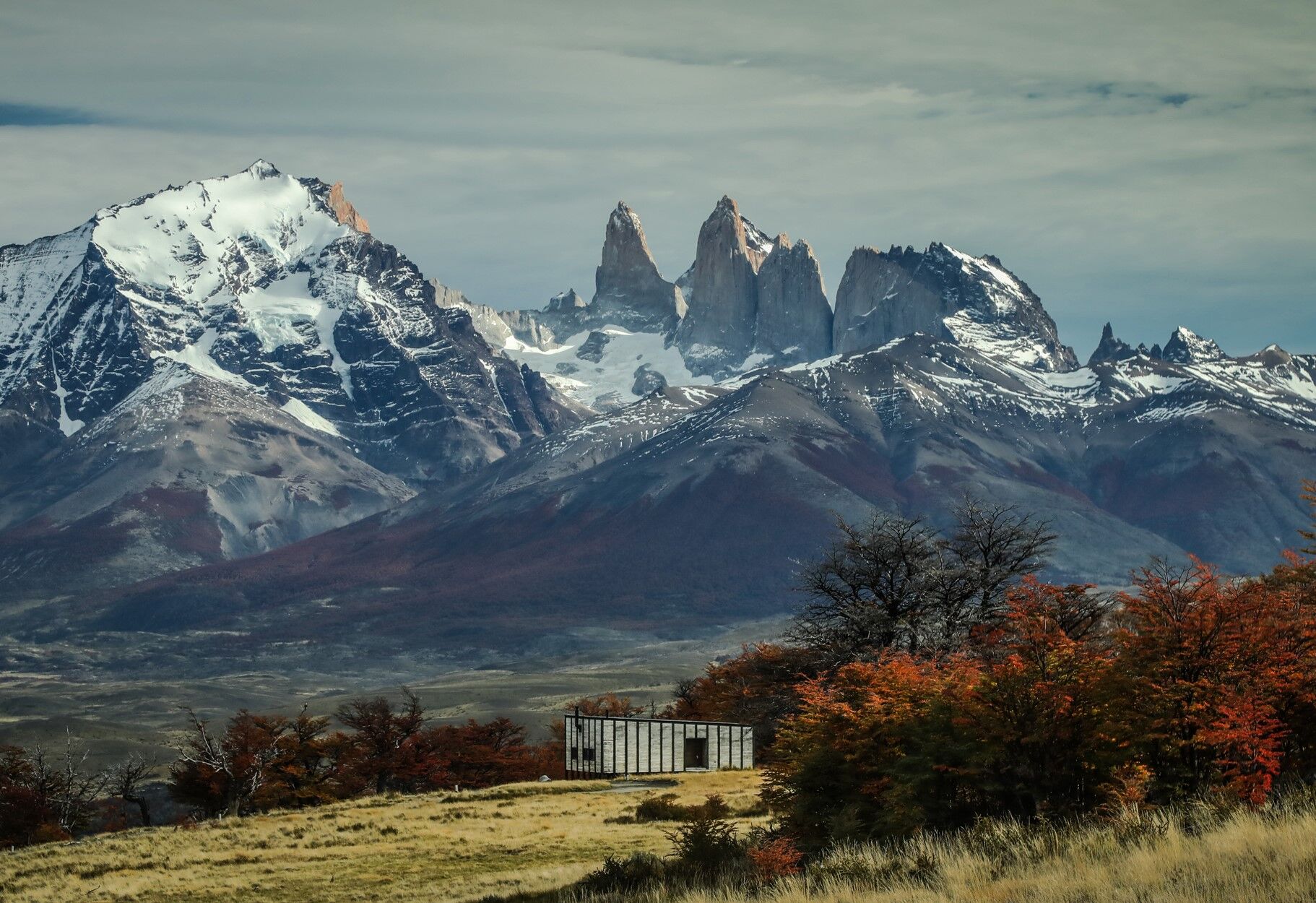
Awasi Patagonia is situated on a private reserve
“Today, through Awasi Foundation, the organization actively invests in conservation, protecting significant swaths of pristine land from the risk of deforestation, reintroducing native species where they have been threatened, and implementing carefully considered social initiatives.”
The writer talks about how “environmental sustainability and social responsibility are intimately interwoven. Carbon-neutrality is not simply about protecting land and buying carbon credits. It also involves investing in local projects doing good work to protect the natural beauty of the land and its cultural expressions, and whose services generate unique experiences for guests.”
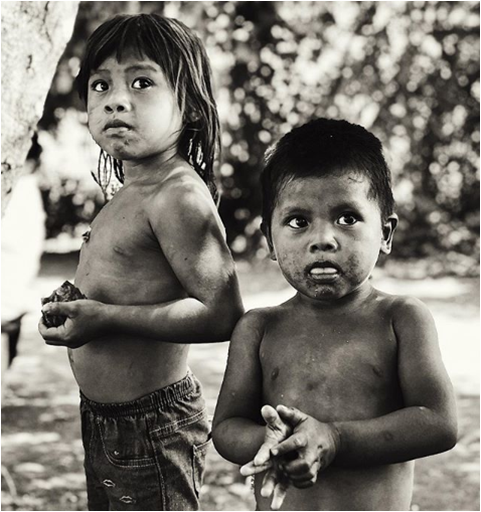
Mbya Guarani Community – The native inhabitants of these lands are still very present in the area, and their ancient culture, language and art strongly influence everyday life in Misiones.
“We invest in conservation because we believe in it,” Matias is quoted saying “because we believe that keeping culture and nature alive are good business, and that is fundamental to our future.”
“Ultimately,” concludes the piece, “Awasi’s approach comes from a place of passion and a devotion to natural beauty that seeks to protect and preserve the magic guests come to experience – this is their way to “give back”.”

Iguazu has the richest biodiversity in Argentina, and is one of the best places for butterfly spotting
The article mentions how we partnered with EcoQualis, a sustainability consulting and certification firm, which works with organizations around the world to help them define, develop and manage sustainable business models.
According to Francisco Ocampo, sustainability advisor for EcoQualis, “the challenge for each hotel is to implement actions to neutralize not only the emissions generated at the hotel, but also those generated by guests when they travel to it.”
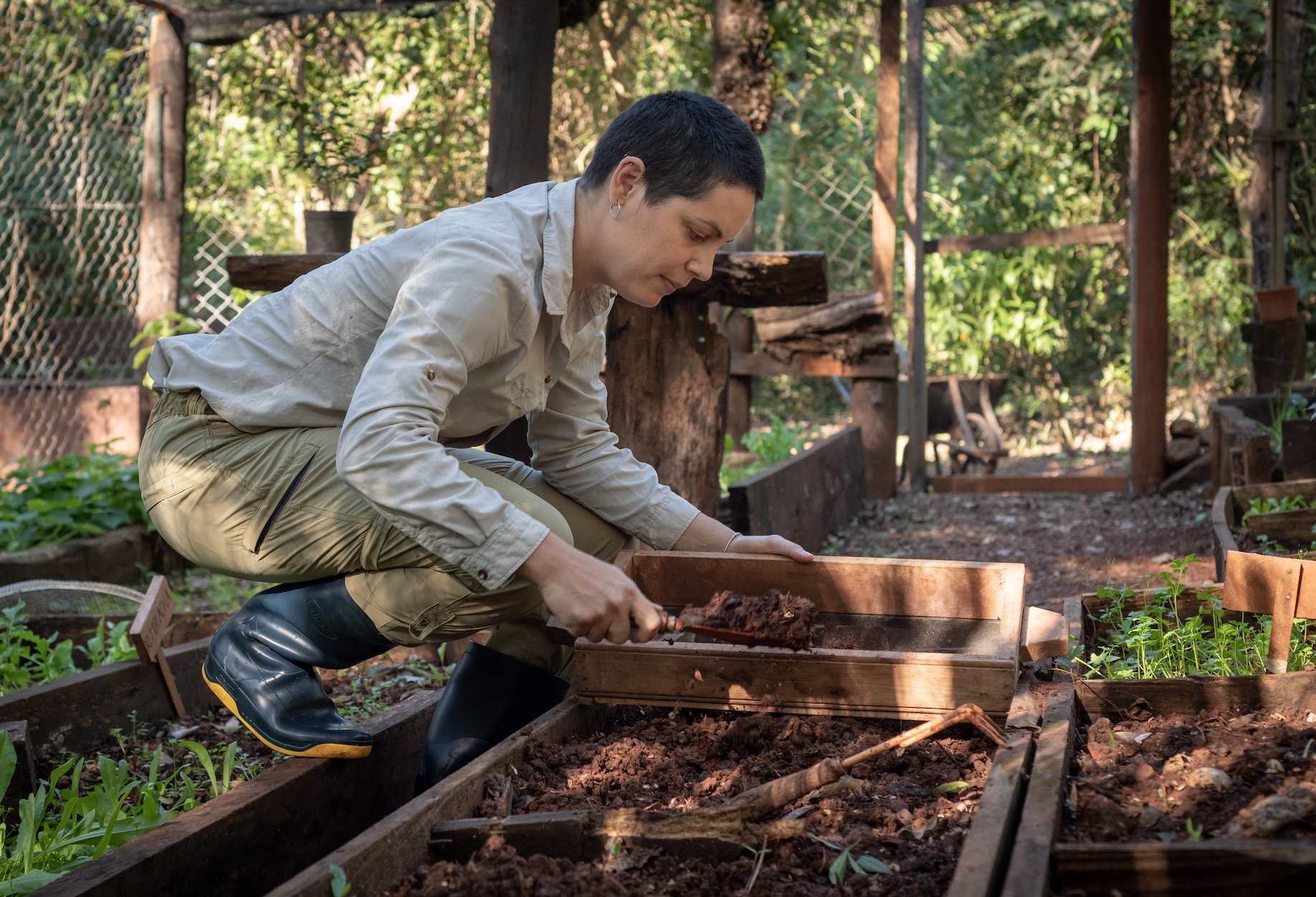
As well as reducing food waste, growing produce on site which reduces food miles
Among the steps that are required by hotels include “making energy systems more efficient, lowering emissions of the operations, and offering to sequester travel emissions as a service to guests.”
According to Project Drawdown, a respected resource for climate solutions, the three most potent solutions to reverse climate change are reducing food waste, improving health and education and encouraging plant-rich diets.
Step by step, we work to make Awasi Atacama, Patagonia and Iguazu as sustainable as possible. There is always more that can be done, but following guidelines to become carbon neutral is a positive step that we highly recommend.

